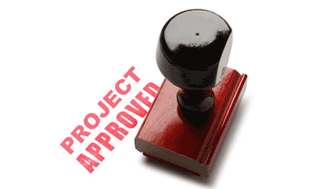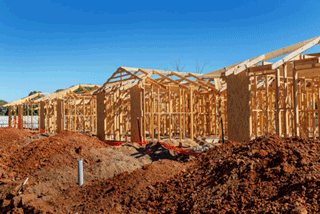Quote of the Week
“October 2020 was the best month for new detached house building approvals in almost 21 years. The numbers out today provide further proof that the HomeBuilder scheme is a huge success in supporting new home building at a very challenging time.”
Master Builders Australia chief economist Shane Garrett
Prices Rise In All Markets In November
 Every capital city and every regional market recorded house price growth in November, according to the latest data from CoreLogic.
Every capital city and every regional market recorded house price growth in November, according to the latest data from CoreLogic.
Nationally house prices rose 1.1% in November, led by a 1.4% in regional markets which continue to out-perform the capital cities. Apartment markets rose 0.2%, again headed by a 1.4% increase in the regions.
Of the 15 major market jurisdictions in Australia (eight capital cities and seven regional markets), 13 have recorded house price growth in the past 12 months, the only exceptions being Melbourne and Regional WA. All markets except Brisbane have also recorded annual growth in the median apartment prices.
In November, house price growth was led by a 2.2% rise in Canberra, with Regional Tasmania up 1.8%, Hobart up 1.7% and Darwin rising 1.6%. The annual growth in house prices has been headed by Regional Tasmania (up 10.6%), Darwin (up 9.1%), Canberra (up 7.8%) and Regional NSW (up 7.4%).
Regional markets continue to outdo the capital city markets. The growth in house prices has been greater in the regions in the past month, the past quarter, the year to date and in the past 12 months.
Economy Bounces Back To Growth
 The economy has bounced back strongly from recession, posting the fastest growth since the late 1970s on the back of a surge in consumer spending as coronavirus restrictions unwind.
The economy has bounced back strongly from recession, posting the fastest growth since the late 1970s on the back of a surge in consumer spending as coronavirus restrictions unwind.
The ABS says the economy grew 3.3% over the three months to the end of September – better than the 2.5% most economists had expected – partly reversing the 7% drop in the June Quarter.
“Australia experienced a partial recovery in the September Quarter,” says the ABS head of national accounts Michael Smedes. The improvement signals the end of “recession”, which is informally defined as two consecutive quarters of economic contraction.
Household spending, which dropped almost 13% in the June Quarter, rose 8% in the September Quarter, driven by spending on hotels, restaurants and cafes, which began to resume more normal trading in the quarter.
Victoria was the only state to record a fall in household spending, of 1.2%, owing to a second lockdown that began in August. The latest set of national accounts, put the economy on track to grow faster than the Reserve Bank had forecast last month.
Approvals Jump To 20 Year High
 Building approvals for private sector houses rose for the fourth consecutive month in October and were at the highest recorded level since February 2000, according to ABS data.
Building approvals for private sector houses rose for the fourth consecutive month in October and were at the highest recorded level since February 2000, according to ABS data.
Residential building approvals rose 3.8% in October, defying economists’ forecasts of a contraction following a huge September spike. Westpac had forecast approvals would slip back 3%.
Daniel Rossi, director of construction statistics at the ABS, says the continued strong demand for detached housing follows the relaxation of pandemic restrictions in most states and territories. “Federal and state-based incentives are also providing support for the housing sector,” Rossi says.
Housing Industry’s Association’s Craig Jennion says the figures show the start of the impact of stage one of HomeBuilder.
In October there were a 10,692 private sector houses approved, up 3.1% from September and 32% higher than 12 months ago. There were 16,584 apartments approved, 3.8% up from last month and 14% up from last year.
Survey Backs Axing Stamp Duty
 An annual land tax should replace the one-off financial sledgehammer of stamp duty on property purchases, say experts.
An annual land tax should replace the one-off financial sledgehammer of stamp duty on property purchases, say experts.
In this month’s Finder RBA Cash Rate Survey, 89% of the 40 experts and economists surveyed were in favour of the proposed stamp duty scrapping. Earlier in November, the NSW State Government announced its plan to make stamp duty optional, granting home-owners the ability to pay an annual land tax instead.
Graham Cooke, insights manager at Finder, says stamp duty can be a dealbreaker for those looking to relocate. “Buying a home in Australia is already an expensive affair and stamp duty makes it more so,” he says. “It effectively raises the bottom rung of the housing ladder, burdens buyers with a huge up-front tax and inhibits the flow of property sales.
“In an ideal market, you buy when you can afford to and you sell when you want to. Stamp duty forces first-time buyers to save up for longer and prevents current owners from upselling.”
HomeBuilder Extension Boosts Economy
 The Federal Government has extended and adjusted the HomeBuilder scheme to keep hundreds of thousands of people in jobs as Australia continues to recover from the pandemic.
The Federal Government has extended and adjusted the HomeBuilder scheme to keep hundreds of thousands of people in jobs as Australia continues to recover from the pandemic.
The updated program will include extending the eligibility for HomeBuilder from 1 January to 31 March; tapering the grant to $15,000 for owner-occupiers who sign contracts between 1 January and 31 March; extending the commencement window by 6 months (to the end of September 2021); and increasing the price cap in Victoria and New South Wales to $850 000 and $950,000.
This has been welcomed by the Property Council of Australia, a strong advocate for an extension. It says HomeBuilder saved the construction industry from decline earlier this year.
Denita Wawn, CEO of Master Builders Australia, says the extension shows the Government’s “ironclad determination” to achieve economic recovery. “The Government knows that a strong building industry means a strong economy,” she says.




